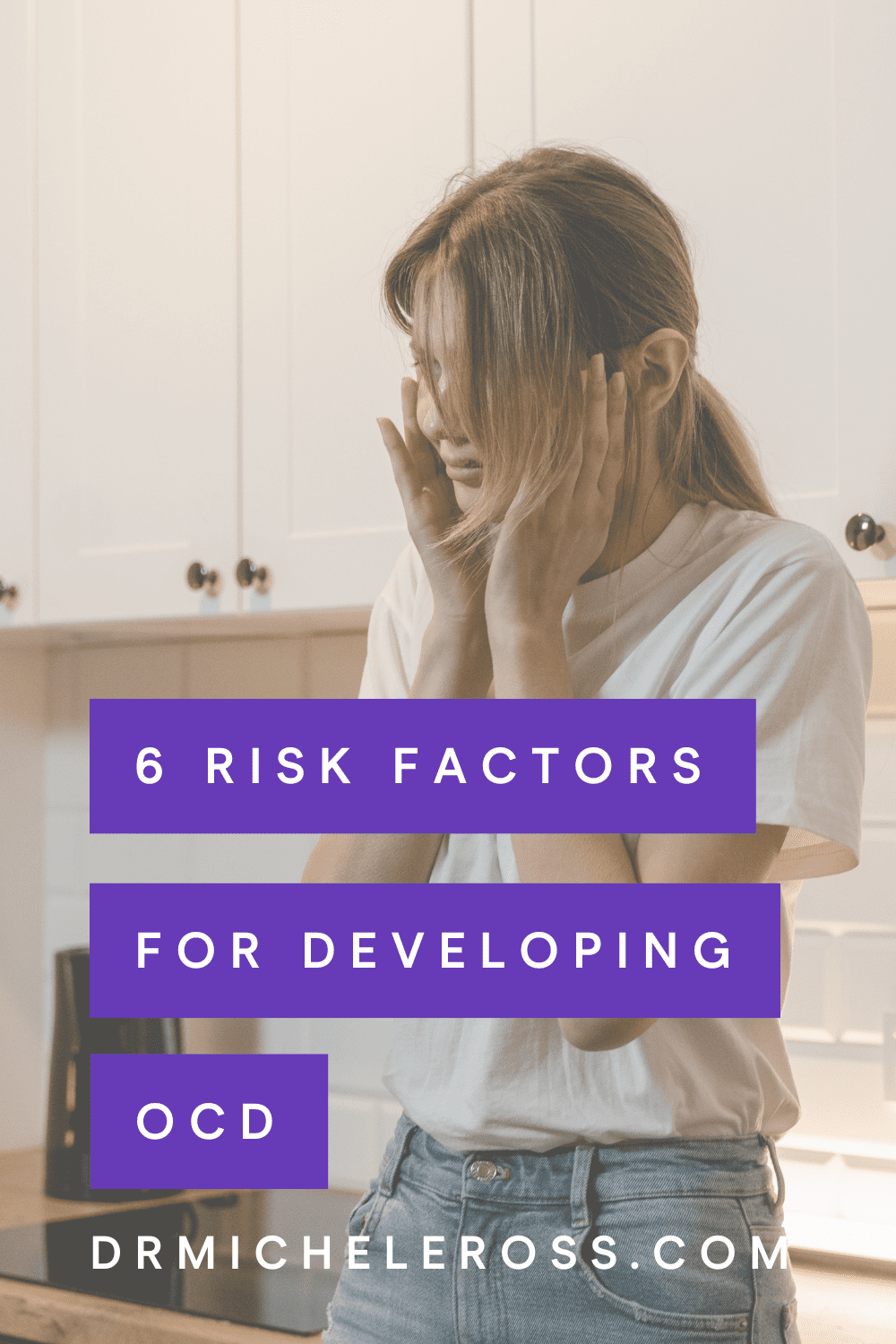
The mental health condition obsessive-compulsive disorder, commonly referred to as OCD, involves obsessive and compulsive thoughts and behaviors. Nearly 3% of Americans have OCD, so it is more common to have it than you would think. Stigma surrounding the disease likely stops people from disclosing that they have it to friends, family, or co-workers.
OCD is not to be confused with an obsessive-compulsive personality disorder. While both have overlapping characteristics, the former encompasses the intrusiveness of thoughts and behaviors while the latter impacts personality traits. To elaborate, OCD is characterized by the obsessions and compulsions of the mind. Obsessive-compulsive personality disorder, on the other hand, is characterized by the need to be in control or to achieve perfectionism.
Characterizing Symptomatology of OCD
OCD is often misunderstood, with many holding the perspective that such thoughts and behaviors are easily recognizable and thus changeable. On the contrary, while such obsessions and compulsions may certainly be recognizable by the individual with the condition, they are not a matter of choice but rather an incessant and uncontrollable need.
Symptoms of OCD aren’t fleeting, nor are they simply a casual annoyance. Rather, they’re long-lasting and persistent, only getting more intense with time. This differentiates those who think they have “OCD” because they feel a “need” to fold a t-shirt correctly and those who suffer tremendously from the disorder, which constantly controls their every action.
The symptoms involved with OCD are primarily those of obsessions or compulsions.
Obsessions in OCD
Obsessions are often the beginnings of OCD, starting as an intrusive thought and later developing into a compulsion to act on it. While the range of topics, situations, and circumstances vary significantly for those with obsessive thoughts, the following are some of the most common obsessive thoughts:
- Germ Phobias
- Thoughts of Self-harming
- Fantasies of Violence and Sexual Acts
- Intrusive Imagery
- Need for Order
- Illogical Concerns Regarding Loved Ones
- Fear of Far-Reaching, Often Illogical Events Occurring
When such intrusive thoughts enter the brain of those with OCD, it immediately becomes an obsession, and they cannot ultimately ignore, suppress, or find the rationale to deal with it.
Failing to seek professional help to manage and treat these intrusive thoughts may result in further developments of obsession to the point of debilitation and an inability to function in daily life.
Compulsions in OCD
Compulsions result secondarily from an obsessive thought as a way to try to relieve the anxiety and stress caused by that obsessive thought. Compulsory actions usually persist as uncontrollably repetitive actions.
Similar to obsessions, compulsions can manifest in many different ways, situations, and circumstances. The following are some common examples:
- Persistent Hand-Washing
- Repetitive Locking of Doors
- Organizing Objects to Perfection
- Touching Something Numerous Times
- Collecting Things in Mass
- Mentally Reliving an Action or Past Decision
When obsessive thoughts become compulsive acts, the ability of the individual to manage the symptoms becomes extremely difficult. At this point, failing to seek help will result in reaching a point of debilitation and an inability to function in daily life.
Risk Factors Associated with OCD
The risk factors associated with the diagnosis of OCD can be external or internal and can be related to family history. OCD is also correlated with levels of serotonin in the brain, which impacts mood and other regulatory functions.
The following are some of the 6 most notable risk factors:
Stress
Increased stress over time has been shown to increase the risk of developing OCD, and those that already have OCD can have worsening symptoms with additional stress.
Personal Trauma
Individuals who have suffered personal trauma such as child abuse or neglect are much more likely to develop OCD.
Personality Characteristics
Certain personality traits are also highly correlated with OCD, such as perfectionism, worry, overthinking, and fear. If these traits are present, OCD can often result.
Traumatic Brain Injury (TBI)
People who have a history of brain injury such as traumatic brain injury or stroke are more likely to develop OCD.
Genetics
People who have genetic mutation or SNP have a high correlation with the development of OCD.
Chemical Imbalance
Obsessive-compulsive disorder may be associated with a chemical imbalance in the brain. Researchers have shown levels of the neurotransmitters serotonin, as well as glutamate and dopamine, are changed in the brains of patients with OCD. Confirming this is the fact that many patients with OCD respond well to treatment with a class of antidepressants called selective serotonin reuptake inhibitors(SSRIs), which work to boost and normalize serotonin transmission in the brain.
Clearly a chemical imbalance is not enough to cause OCD, as not all people with depression or chemical imbalances go on to develop OCD, but it is possible that a chemical imbalance, along with a genetic mutation that increases risk for OCD and/or additional severe stress could cause a perfect storm in some patients.
Treating Obsessive-Compulsive Disorder
If you think you might have OCD, the first step is to seek out a diagnosis from a qualified psychiatrist, therapist, or other healthcare provider. If the diagnosis of OCD is made, it’s best to continue to follow up with a mental health professional to decide on the best course of treatment.
In most cases, OCD requires a multifaceted approach in order to successfully manage the condition, and this usually includes medication and therapy. Some people have benefited from combined medical and cognitive behavioral therapy, and some have done well with either singular medication treatment or singular behavioral therapy.
Other potential treatments include deep brain stimulation, which is the process of placing electrodes on specific locations in the brain. This treatment is usually reserved for cases in which all other treatments, including medication and therapy, have been unsuccessful. The procedure is performed by a neurosurgeon and has the associated risks of surgery; however, the results seen by this procedure have been very promising.
Treatment of OCD most often involves medication, and some examples of the most effective medications include Prozac, Zoloft, Celexa, Clomipramine, and Effexor. These medications work by affecting serotonin levels, and they have been very effective in reducing the symptoms of OCD.
Cannabis For OCD
Alternative treatments such as CBD oil and cannabis have been explored by the 40% of patients who have not responded well to prescription medications or prefer to not use them due to side effects such as decreased libido and sexual dysfunction. CBD oil differs from THC products in that CBD is less euphoric than THC and has anxiolytic properties by directly activating serotonin receptors subtype 5-HT1A.
So far, research suggests that CBD oil and smoking or vaping cannabis or hemp flower rich in CBD, not THC, is more beneficial for obsessive-compulsive disorder. A study using the app Strainprint found a 60% reduction in compulsions, a 49% reduction in intrusions, and 52% reduction in anxiety after inhaling cannabis of any type, although higher doses or concentrations of CBD were the most effective in reducing compulsions.
Final Thoughts
OCD can be a debilitating condition, yet it can be treated and managed with professional interventions by a mental health professional. In addition, the condition should be evaluated and treated early to achieve the best results. Consider all options, including using CBD to complement your treatment plan or as alternative medicine.
Pin This Post





